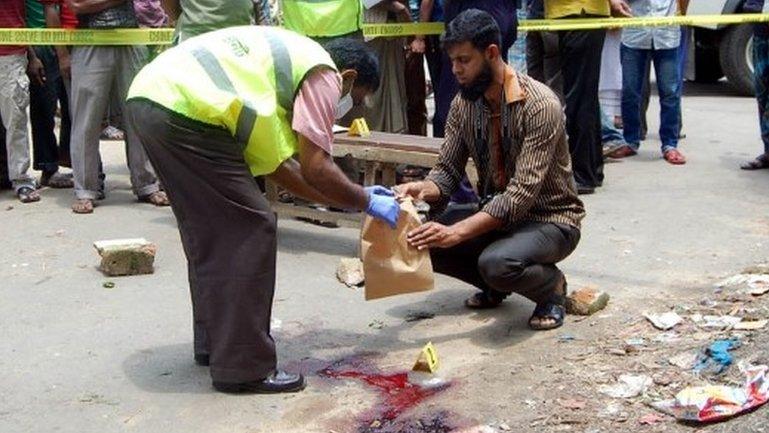Bangladesh: The threat of small-scale terror attacks
- Published
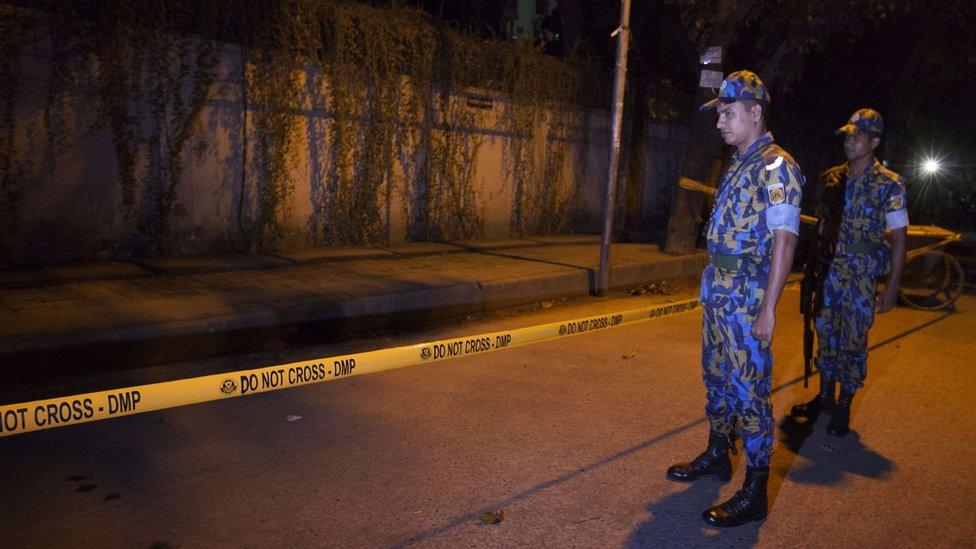
The US and Britain have urged their citizens in Bangladesh to be cautious after the killing of two foreigners in the country
Fear of terror attacks tends to focus on the "spectaculars" - the big bomb plots that kill lots of people - but small-scale terror attacks are becoming increasingly common and have disturbing implications.
Two recent murders in Bangladesh show just how effective small-scale attacks can be at spreading fear and paralysing ordinary life.
On the evening of 28 September, a 50-year-old Italian aid worker, Cesare Tavella, was jogging along a road the upmarket Gulshan area of Dhaka. Gulshan is the Mayfair of the Bangladeshi capital: it's where the embassies, the posh hotels and the swanky restaurants are. Three men pulled up on a motorcycle. They shot Tavella from behind three times at close range and then drove off into the night. He died of his wounds.
Five days later, another foreigner was targeted. Kunio Hoshi, a Japanese citizen who ran an agricultural project in Rangpur district of northern Bangladesh, was riding in a rickshaw when he was shot dead by masked men on a motorcycle.
Rise in attacks
It has been widely reported that the Islamic State (IS) group said it carried out the attacks, though this has not been confirmed. But Bangladesh has been struggling to deal with a recent rise in radical Islamist groups. This year four secular bloggers have been murdered in horrific assaults. But the latest attacks are likely to cause far more damage to the Bangladesh economy.
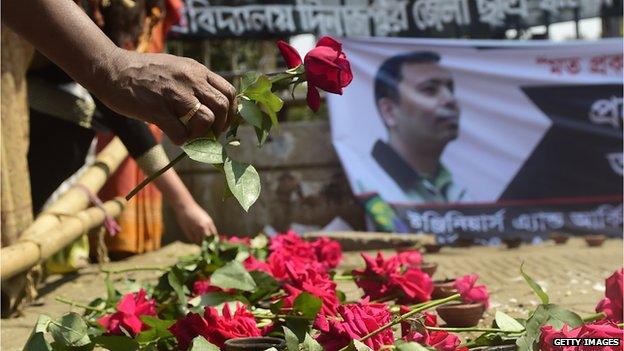
Avijit Roy, an atheist who advocated secularism, is one of the bloggers who was brutally murdered this year
That's because the targets were seemingly randomly chosen foreigners: it means anyone who travels to Bangladesh could be a target. And sure enough, within hours of the attack on Tavella, embassies were put on high alert and travel warnings were issued.
There are reports that as many as two-thirds of tourist bookings have been cancelled, that NGOs are restricting staff movements and - perhaps most significant of all - that foreign buyers in Bangladesh's crucial garment trade are in a panic, with many cancelling trips to the country. And, to cap it all, the Australian cricket team cancelled a planned trip to Bangladesh.
The scare was heightened on 5 October with news of a third - most probably unrelated - attack. Three men attempted to slit the throat of a Baptist pastor in his home in the Pabna district. The Rev Luke Sarker, a Bangladeshi convert to Christianity, escaped with minor injuries after his wife came to his rescue. Police have arrested a member of student wing of the Jamaat-e Islami party in connection with the attack.
Smaller operations
The murders appear to be part of a wider international trend away from big, well-planned attacks to smaller commando-style operations. Think of the attacks on the offices of the French satirical magazine Charlie Hebdo and on Fusilier Lee Rigby in the London suburb of Woolwich.
Governments around the world have long been braced for an increase in these kind of incidents. After Charlie Hebdo, MI5 warned that Britain is at risk of more of what it called "Paris-style" attacks.
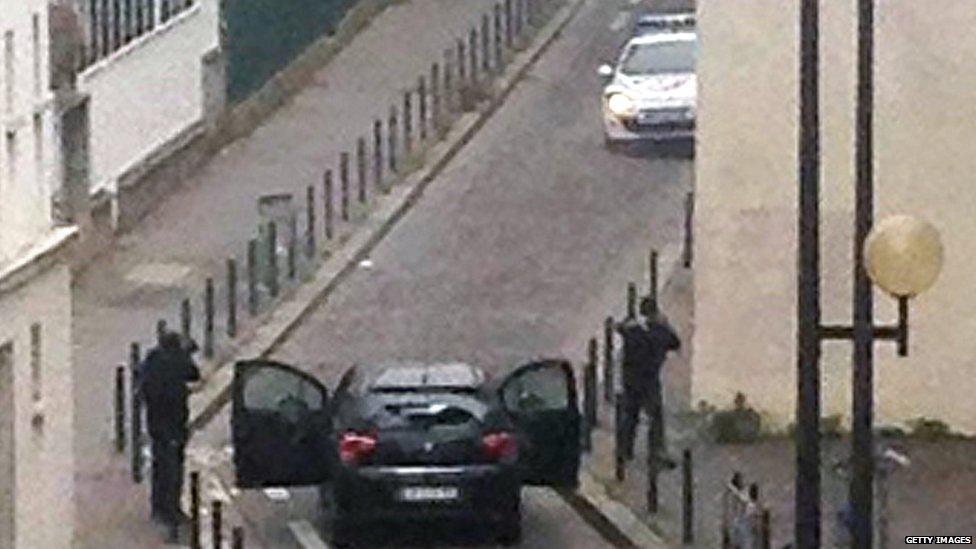
The Charlie Hebdo attack was carried out by only two gunmen
They certainly pose a huge challenge to the authorities. They are much harder to disrupt because they are so easy to organise. The men who attacked Lee Rigby used knives instead of guns and didn't even have formal affiliation to a militant organisation. What's more, in Bangladesh the perpetrators didn't stick around to be "martyred", but vanished into the night, perhaps to prepare for further attacks.
And there is evidence that commando-style attacks are becoming more common. A UN Report in July 2014, external found that the main reason for the increase in civilian casualties in the conflict in Afghanistan is because the Taliban has shifted away from using improvised explosives to attacks involving gun battles in heavily populated areas.
The government of Bangladesh denies that there is an IS presence in the country and insists the link between the group and these murders has not been proven. But whoever is responsible, the attacks have done terrible damage to Bangladesh's reputation.
Bangladesh, officially a secular nation, had until this year been pretty much free of militant violence. The fear is that it could now begin to be bracketed along with the likes of Pakistan and Afghanistan. That would have terrible consequences the country's growing economy.
But let's be clear, the move towards commando-style attacks isn't just an issue for Bangladesh, it is something we should all be anxious about. The risk is that copycats will look at how effective the attacks in Bangladesh have been and replicate them around the world.
- Published3 October 2015
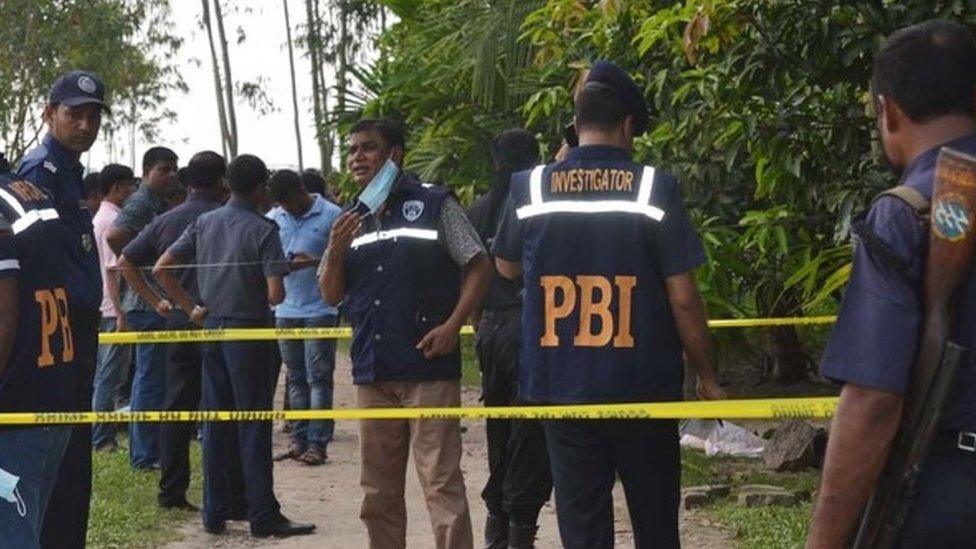
- Published29 September 2015
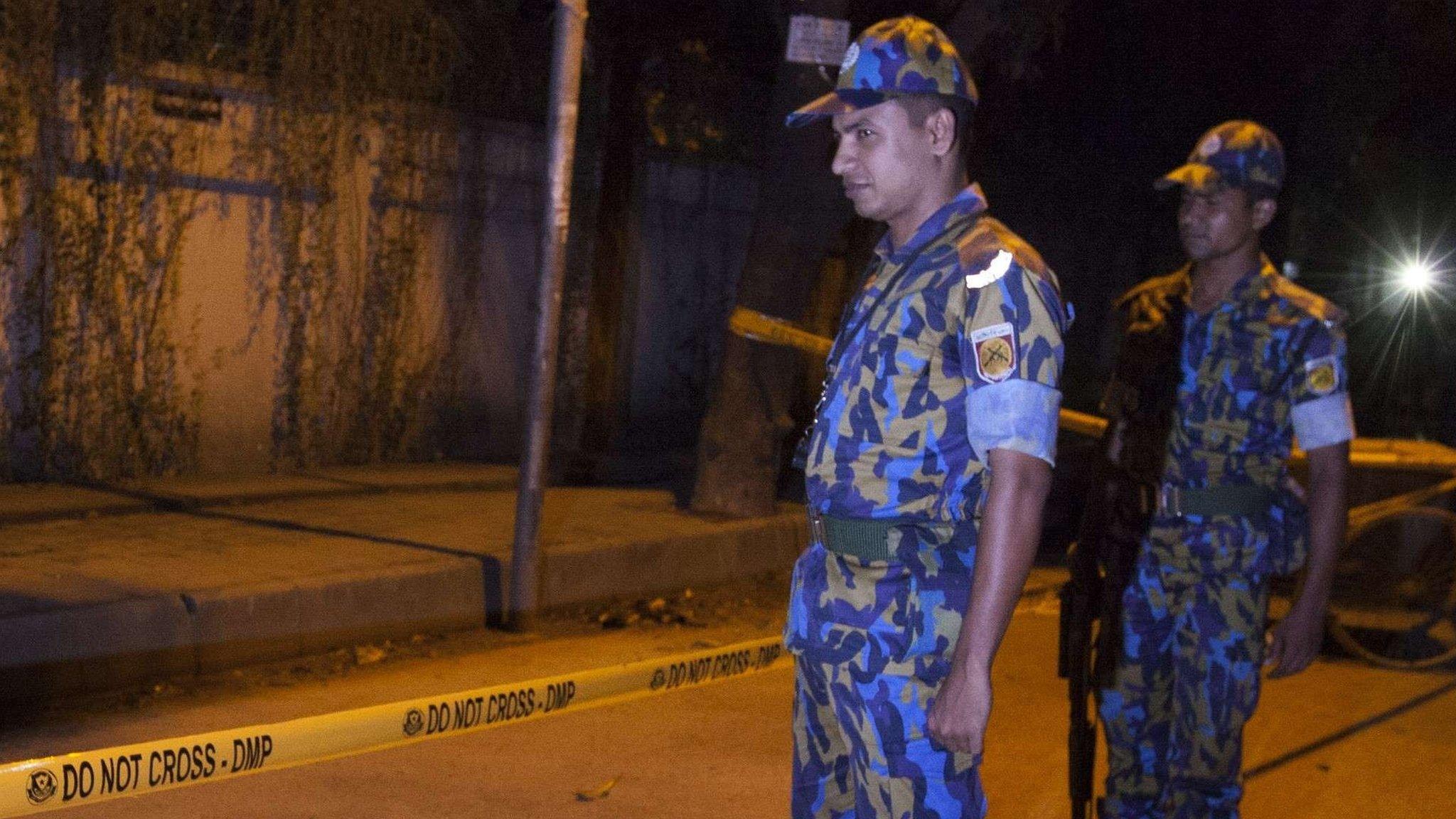
- Published12 May 2015
